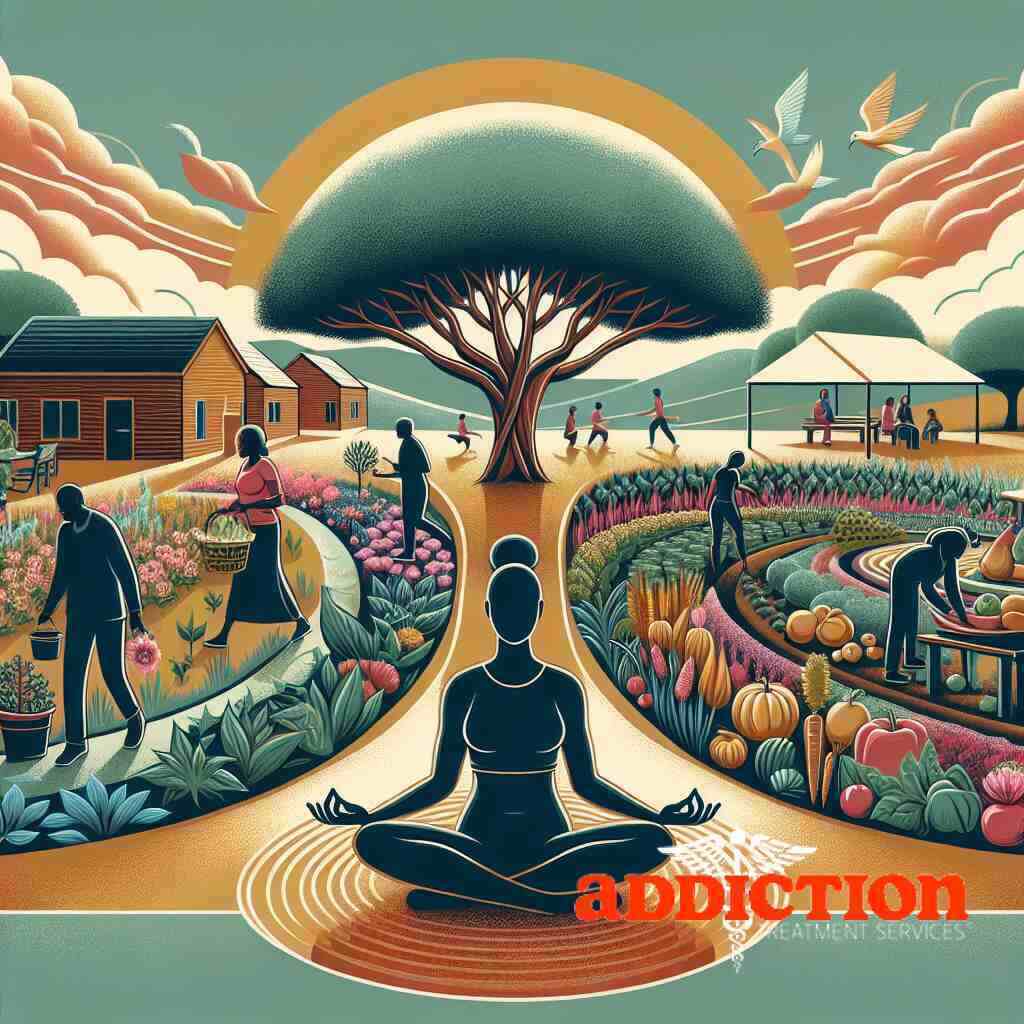 Posted On: 07/19/2023
Posted On: 07/19/2023Embracing the Journey to Sobriety
Understanding the Role of Sober Living Homes in Recovery
Understanding the transformative role of sober living houses is crucial in the addiction recovery journey. These environments provide a structured space that bridges the gap between intensive treatment and a return to daily life. Here, individuals find a haven to practice the skills acquired during treatment. Sober living homes are more than just a place to stay; they are nurturing communities that promote sobriety through accountability and support. Residents are encouraged to maintain a healthy lifestyle while forging connections with others on a similar path, which can be a significant factor in preventing relapse. These homes underscore the importance of building a resilient foundation for a sober lifestyle.
Building a Supportive Sober Living Community
Building a supportive sober living community is fundamental to sustaining long-term recovery. In this space, relationships are formed based on mutual understanding and shared experiences. Participation in house meetings and communal activities fosters a sense of belonging and camaraderie. Within these communities, rules are established to create a stable and safe environment conducive to sobriety. Residents often find solace and strength in each other’s successes and challenges, creating a collective resilience. This sense of community support can be pivotal, as it helps residents reinforce their commitment to sobriety and face challenges with a network of understanding peers.
The First Step Towards Lasting Change
Embarking on the beginning of the addiction recovery process by entering a sober living home represents the first significant step towards lasting change. It is a declaration of commitment to one’s health and well-being, reinforcing the decision to leave behind the lifestyle of addiction. The structured environment of sober living homes offers a stable platform where individuals can gradually reintroduce themselves to daily responsibilities and develop independent living skills. This phase is crucial for building confidence and adapting to life without substances. The journey begins with small, consistent steps that ultimately lead to substantial transformations, helping residents visualize and strive toward a future defined by sobriety and personal growth.
Cultivating Healthy Routines in Sobriety
Nutrition and Recovery: Fueling Body and Mind
A paramount aspect of fostering healthy habits in sober living homes is prioritizing nutrition. Nutrition plays a vital role in addiction recovery, as it fuels both body and mind. Balanced meals rich in essential nutrients help restore physical health and enhance mental clarity, reducing cravings and stabilizing mood swings, which are common during recovery. Residents are encouraged to engage in mindful eating practices, focusing on consuming whole foods to replenish the nutrients depleted by substance use. Incorporating nutritional education within sober living communities empowers individuals to make informed dietary choices, further supporting their journey toward a healthy and sustainable sober lifestyle.
Nutrition is often overlooked but is integral to maintaining long-term sobriety. In addition to physical health benefits, proper eating habits can significantly improve mental well-being, which is crucial in maintaining emotional stability during recovery. Sober living homes facilitate access to nutritious food options, educating residents on how to integrate healthy choices into their daily routines. By understanding the significance of balanced nutrition, individuals can develop a stronger foundation for recovery, establishing a holistic approach to health that attends to both physical and psychological needs.
Mindful Living in Sobriety: Practices for Inner Peace
Mindful living is an indispensable practice in the pursuit of sobriety, offering a pathway to inner peace. Through mindfulness, individuals learn to engage in the present moment, reducing stress and enhancing emotional resilience. Techniques such as meditation, yoga, and breathing exercises foster a state of calm that helps manage triggers and prevent relapse. Sober living homes encourage regular participation in mindfulness practices, providing a safe environment where individuals can explore these methods without distractions. By incorporating mindful living approaches in sobriety, residents can build a serene mindset conducive to sustainable recovery.
The impact of mindfulness extends beyond immediate stress relief; it cultivates a deeper awareness of one’s thoughts and emotions, promoting self-compassion. This understanding is pivotal as it helps individuals navigate the complexities of addiction recovery with a sense of agency and clarity. Sober living communities often offer workshops and resources for residents interested in exploring mindful practices, encouraging the adoption of these techniques as part of daily life. This commitment to mental well-being provides residents with invaluable tools to handle life’s challenges with grace and resilience.
Time Management in Sobriety: Structuring Your Day for Success
Effective time management is a cornerstone of a productive and successful sober lifestyle. Structuring one’s day replaces chaos with order, allowing individuals in recovery to focus on positive activities and personal growth. In sober living homes, residents are guided on how to prioritize tasks and allocate time efficiently. By drafting schedules that balance work, leisure, and self-care, individuals can avoid idle periods that often lead to temptation and regression. Developing sound time management skills fosters a sense of achievement and independence, empowering individuals to take charge of their recovery journey with confidence.
Mastering time management also reinforces accountability, a crucial aspect of life in sober living homes. By adhering to structured routines, residents develop a sense of discipline that extends to other areas of life, nurturing the maturity needed to handle responsibilities effectively. This skill not only supports recovery but also prepares individuals for a successful transition to independent living. It instills a habit of setting realistic goals and consistently working toward them, which enhances self-esteem and reduces anxiety related to the uncertainty of life post-recovery.
Stress Management Techniques for Lasting Recovery
Stress is a formidable adversary in addiction recovery, making stress management techniques a critical component of lasting sobriety. In sober living environments, residents learn to identify stress triggers and explore practical responses to them. Techniques such as deep breathing, exercise, creative activities, and support groups help alleviate stress and build emotional resilience. By focusing on holistic stress management, sober living homes equip residents with the skills necessary to navigate the inevitable challenges life presents without resorting to substance use.
The integration of regular exercise and sober lifestyle adjustments further supports stress reduction and physical well-being. Physical activity releases endorphins, the body’s natural mood elevators, enhancing both mental and physical health. Moreover, fostering creativity through art, music, or writing offers therapeutic outlets for expression, providing a sense of accomplishment and joy. These stress management strategies, when combined with community support, create a robust safety net that helps individuals maintain their sobriety and continue their journey toward lifelong recovery success.
Fostering Personal Growth and Resilience
Goal Setting in Sober Living: Charting Your Path Forward
Setting achievable goals is a vital component of the addiction recovery journey. In sober living homes, residents are encouraged to map out their aspirations to create a clear vision for their future. Goal setting in recovery housing provides a structured approach that keeps individuals focused and motivated. By establishing short-term and long-term objectives, residents can track their progress and celebrate milestones. This not only boosts self-esteem but also reinforces the commitment to a sober lifestyle. Through personalized goal-setting strategies, individuals learn to prioritize their efforts towards meaningful achievements, fostering personal growth and resilience.
Goals set within sober living environments often revolve around rehabilitating relationships, career development, and personal health. The support system provided by sober living homes plays an integral role in helping individuals navigate challenges and overcome obstacles. Peer encouragement and communal accountability ensure that residents remain focused on their targets, making the pursuit of these goals more attainable. By regularly reassessing and refining these objectives, residents learn to adapt to their evolving needs and circumstances. This adaptability is crucial for sustaining sobriety and successfully transitioning to an independent future.
Developing Life Skills for a Sustainable Sober Lifestyle
Developing essential life skills is paramount for creating a sustainable, sober lifestyle. In sober living homes, individuals are supported in acquiring skills required for independent living. These life skills include financial management, cooking, cleaning, and time management. By engaging in activities that promote self-sufficiency, residents gain confidence and a sense of empowerment. Embracing life skills in sober living ensures that individuals are well-prepared to meet the challenges of everyday life post-recovery.
The development of these skills is facilitated by supportive community environments that offer mentorship and guidance. House meetings and workshops often focus on teaching practical skills that enhance personal responsibility and productivity. As individuals integrate these skills into their routines, they experience a renewed sense of agency and control over their lives. This comprehensive approach prepares residents for a smooth transition out of sober living, equipping them with the tools necessary to thrive in society and remain sober long-term.
Coping Mechanisms in Recovery: Tools for Emotional Stability
Learning effective coping mechanisms is crucial for achieving emotional stability and preventing relapse. Sober living homes create an environment where residents can explore various strategies to manage stress and emotional triggers. Techniques such as journaling, meditation, and artistic expression offer residents healthy outlets for their emotions. By developing sustainable coping strategies, individuals enhance their resilience and are better prepared to handle challenging situations without resorting to substance use.
Access to resources such as support groups and counseling within sober living homes provides additional guidance in cultivating these coping techniques. Residents are encouraged to share their experiences and learn from the journeys of others, strengthening their emotional intelligence. These collaborative efforts foster a supportive atmosphere where individuals can safely express vulnerabilities and seek assistance when necessary. The empowerment drawn from mastering these strategies contributes to a foundation of emotional stability, essential for maintaining sobriety and personal growth.
Relapse Prevention Techniques: Building a Stronger Foundation
Implementing effective relapse prevention techniques is critical to sustaining long-term sobriety. In sober living environments, residents are equipped with tools and strategies to anticipate and manage triggers that may lead to relapse. This includes education on identifying warning signs and engaging in proactive behaviors that promote healing and resilience. By immersing themselves in activities that support their sobriety, individuals can build a robust framework for a healthier future.
Residents receive relapse prevention advice that is both practical and personalized to their unique experiences and needs. Workshops and group discussions offer insights into transforming negative thoughts into positive actions. By ingraining these techniques into daily life, residents create a security network that helps mitigate potential risks of relapse. This ongoing commitment to relapse prevention fosters confidence and reinforces the foundation upon which individuals continue to build their sober lives, ensuring an enduring path of recovery and well-being.
The Power of Connection and Community Support
Building Healthy Social Connections in Recovery
Establishing healthy social connections is a critical component of maintaining sobriety and fostering personal growth. Within sober living homes, residents are encouraged to engage with peers who share similar recovery goals. This environment not only minimizes isolation but also promotes a sense of belonging that is crucial for emotional support. By participating in group activities and communal tasks, individuals can form genuine bonds that provide encouragement and accountability throughout their recovery journey. Such connections often act as a safety net, helping to prevent relapse by providing emotional and practical support.
Strong social networks contribute significantly to overall well-being and rehabilitation success. Residents learn to nurture relationships that inspire positivity and motivate sustained recovery, counteracting the negative influences associated with past substance use. These connections are integral in building a healthier lifestyle, as they reinforce the idea that meaningful and supportive relationships can thrive without the crutch of substances. As individuals develop these relationships, they witness firsthand the potential for recovery success through community support, empowering them to remain committed to their goals.
The Role of Support Groups in the Recovery Process
Support groups play an indispensable role in the addiction recovery journey, offering a platform for shared experiences and mutual understanding. Regular attendance at AA Meetings and NA Meetings can prove transformative, as these gatherings provide a space for open discussion and encouragement. Participants often share stories, challenges, and triumphs, which fosters a deep sense of camaraderie and validation. This shared environment allows individuals to feel understood and less alone in their struggles, enhancing their resolve to stay sober.
In addition to providing peer support, these groups offer educational resources and practical advice on coping mechanisms, relapse prevention, and sober living success strategies. Through this collaborative framework, individuals gain valuable insight into managing their addiction and navigating the complexities of recovery. Support groups serve as a cornerstone of addiction treatment services, reinforcing the critical importance of community support in addiction recovery. By actively engaging in these settings, individuals receive the emotional reinforcement necessary to sustain their recovery efforts.
Creating a Supportive Sober Environment: Finding Your Tribe
Creating a supportive, sober environment begins with finding a community or “tribe” that aligns with one’s values and goals. This involves seeking out spaces and groups where the emphasis is placed on recovery, positivity, and personal development. These environments, such as sober living homes or treatment centers, are designed to foster a culture of support and encouragement. Residents can pursue sober lifestyle management in Texas or explore community building in Florida’s recovery centers to find the tribe that resonates with their needs and aspirations.
A supportive tribe acts as a buffer against the challenges of recovery, providing emotional, social, and practical support. This sense of community empowers individuals to thrive in sobriety, sharing resources and experiences that fortify personal growth. Inhabitants of these environments are encouraged to engage in open dialogue, mentorship, and collaborative activities that deepen their commitment to a sober life. By prioritizing an environment rich in support and motivation, individuals lay the foundation for lasting success and a healthier, more fulfilling future. As they integrate into these communities, they realize the profound impact that a supportive tribe can have on their recovery journey, highlighting the essential nature of strong, positive social networks.
Conclusion: A Bright Future Awaits
Reflecting on Your Addiction Recovery Journey
Embarking on the addiction recovery journey is both a courageous decision and a transformative process. Reflecting on the progress made during one’s time in sober living homes reveals remarkable growth and resilience. This phase fosters a sense of accomplishment as individuals recognize the strides taken toward sobriety. By appreciating the lessons learned and the skills acquired, residents cultivate gratitude for their journey. This introspection strengthens their resolve, reinforcing their commitment to maintain a sober lifestyle. It is essential to acknowledge that recovery is not a linear path but a series of milestones worth celebrating.
Sustaining Personal Growth and Sober Success
Continuing to nurture personal growth is vital to achieving long-term sober success. The habits and routines developed within sober living communities provide a solid foundation for lifelong sobriety. As individuals transition into independent living, prioritizing these strategies, such as nutrition and stress management, ensures that the positive changes endure. Engaging in ongoing goal setting and continual skill development equips individuals to adapt to life’s challenges. Moreover, focusing on mental well-being in addiction recovery ensures emotional balance and resilience. This commitment to personal development empowers residents to face future obstacles with confidence and grace.
Embracing Ongoing Recovery Support Services
Embracing ongoing recovery support services is crucial for maintaining the momentum gained during time spent in sober living homes. Access to resources like support groups, counseling, and community networks provides the reinforcement needed to stay on track. Addiction Treatment Services offers guidance and connections to local treatment facilities, making it easier to find comprehensive support tailored to your needs. Engaging in community support in addiction recovery builds a network of strong relationships that foster accountability and encouragement. By remaining open to guidance and utilizing these services, individuals ensure that they are never alone in their journey, paving the way for a sustainable and fulfilling sober life.
Frequently Asked Questions
Question: How can sober living homes support building healthy routines during the addiction recovery journey?
Answer: Sober living homes play a vital role in building healthy routines during the addiction recovery journey by providing a structured and supportive environment. These homes foster a community atmosphere where residents can engage in activities focused on recovery and personal growth. Residents are encouraged to participate in communal tasks, which can include cooking nutritious meals together or engaging in group mindfulness practices. By immersing in such activities, individuals not only learn the importance of healthy living strategies but also gain accountability and support from peers. Addiction Treatment Services connects individuals with sober living homes equipped with resources and programs tailored to nurture these healthy habits, fostering a sustainable sober lifestyle. This approach ensures residents develop the life skills necessary to maintain long-term sobriety.
Question: In the blog titled Developing Healthy Habits While in Sober Living Homes, what role does nutrition play in the recovery process, and how can Addiction Treatment Services assist with this aspect?
Answer: Nutrition plays a critical role in the recovery process as it helps restore physical health and enhance mental clarity. A balanced diet can reduce cravings and stabilize mood swings, both of which are vital during addiction recovery. In sober living homes, residents are encouraged to consume meals rich in essential nutrients to replenish any deficiencies caused by substance use. Addiction Treatment Services can assist by connecting individuals to recovery programs that emphasize nutritional education and support. These programs educate residents about the impact of diet on both their physical and psychological well-being, thereby promoting a holistic approach to recovery. By choosing treatment facilities that incorporate comprehensive nutrition plans, individuals can better support their journey toward lasting sobriety.
Question: How does time management contribute to success in sober living environments, and what resources does Addiction Treatment Services offer to support this skill?
Answer: Time management is a cornerstone for success in sober living environments, as it structures daily life and helps prevent relapse by minimizing idle periods that might lead to temptation. Effective time management allows individuals to prioritize positive activities, set realistic goals, and create a balance between work, leisure, and self-care. Addiction Treatment Services provides access to a variety of addiction treatment centers that incorporate life skills development programs, including time management workshops. These programs equip residents with the tools necessary to structure their day efficiently, fostering independence and accountability- key traits for a successful transition out of sober living. By adopting these practices, individuals can enhance their self-esteem and confidence, supporting a stable and rewarding recovery journey.
Question: What strategies are employed in sober living homes for stress management, and how can Addiction Treatment Services aid in integrating these techniques?
Answer: Stress management in sober living homes is achieved through the practice of mindfulness, regular physical activities, and access to counseling and support groups. Mindfulness practices like yoga, meditation, and deep breathing exercises help individuals stay grounded and manage emotional triggers. Additionally, engaging in creative activities such as art or music provides therapeutic outlets for stress relief. Addiction Treatment Services assists by guiding individuals to treatment facilities that specialize in stress management within their programs. These facilities employ holistic approaches to stress reduction, offering resources and workshops tailored to reinforce emotional resilience. By incorporating these strategies, residents can better navigate the challenges of recovery while strengthening their commitment to a sober lifestyle.
Question: How do sober living homes facilitate the development of healthy social connections, and what role do Addiction Treatment Services play in this process?
Answer: Sober living homes facilitate the development of healthy social connections by creating an environment where residents can engage with peers who share similar recovery goals. This sense of community is crucial for emotional support and provides a network of accountability and encouragement. Through group activities and shared responsibilities, residents form bonds that inspire positivity and motivate sustained recovery. Addiction Treatment Services play a pivotal role by connecting individuals with community-focused sober living arrangements. These placements ensure that residents have access to supportive environments that encourage building lasting, meaningful relationships. Such connections are instrumental in diminishing feelings of isolation and promoting a healthy, sober lifestyle, ensuring individuals have a solid support system throughout their recovery.
Question: What are some effective coping mechanisms for maintaining emotional stability in recovery, and how do Addiction Treatment Services help individuals access these resources?
Answer: Effective coping mechanisms for maintaining emotional stability in recovery include journaling, meditation, support group participation, and artistic expression. These strategies provide healthy outlets for emotions and help mitigate stress and triggers associated with relapse. Addiction Treatment Services aids by providing connections to treatment programs and sober living homes that emphasize the development of sustainable coping strategies. These programs offer counseling and peer support, guiding individuals in exploring various techniques to enhance their resilience. By promoting emotional intelligence and stability, Addiction Treatment Services helps individuals build a foundation for lasting recovery, ensuring access to the resources needed to cope with the challenges of a sober lifestyle.




